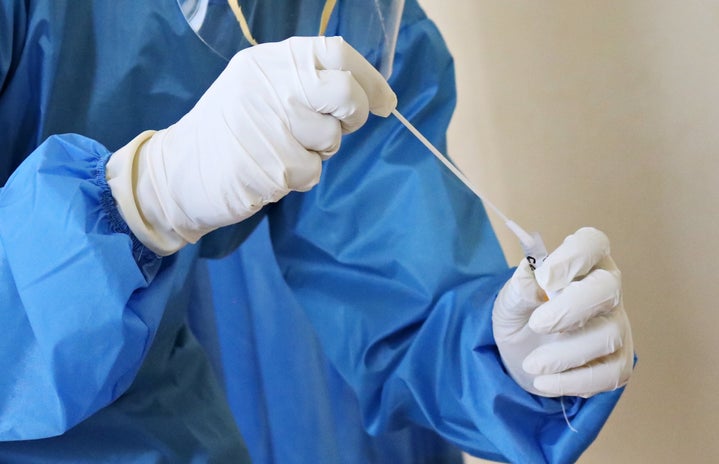If someone had asked me three years ago what I thought working in research meant, I would’ve pictured a bunch of doctors poring over microscopes in white lab coats. My idea of a research job was only further confirmed as I made my way through the high school science curriculum, performing countless experiments and writing numerous lab write-ups. So, as someone with no interest in the natural sciences, I thought a research job could never be in my future.
But I couldn’t have been more wrong. The summer before my senior year of high school, we were at the height of the pandemic, and I was looking for a way to support my community during this challenging time. Having just studied clinical psychology in my AP Psych class, I was particularly inspired to help those struggling with their mental health, as I know several family members and friends who were grappling with the effects of the pandemic restrictions.
My desire to help unexpectedly steered me towards a research position at Mount Sinai Hospital in New York City, where a team was studying the effects of the pandemic on postpartum depression symptoms. My job was to help the head psychologist analyze the data and use key psychology theories to draw conclusions about what we saw.
I’ll be honest: because of my preconceived notions about research, I felt incredibly intimidated and unprepared for the position. However, I am so glad I decided to join the team, because the experience I gained was nothing like what I expected, but so much better than I could’ve ever imagined.
Below, I outline five unexpected discoveries I made about what it’s really like to work in research.
research is mostly trial and error.
As a perfectionist, I quickly had to learn that it was ok to take risks and accept mistakes as part of the process. My lab coworkers and I would analyze the data one way, see that it didn’t reveal anything significant, and then try again by looking at it from a different angle.
The way we finally decided to categorize the data we collected (by socioeconomic status) came after weeks of trying, and failing, to find significance through other analyses. While this process is taxing, the long hours spent trying to make sense of the data made the breakthroughs that much more rewarding.
it’s more collaborative than you think.
Coming into this experience, I thought research was supposed to be individual and competitive, but this couldn’t be further from the truth. I spent most of my time meeting with the head psychologist to discuss the various ways to analyze and/or organize our data. Without those long brainstorming sessions and working together, we probably wouldn’t have published a paper.
it’s not just numbers.
Working in research also means being a skilled writer and communicator. Researchers have to explain their processes, conclusions, and justify why their findings are worthwhile to the rest of the academic community. So, while understanding the data is an important component of the job, being able to explain the research is equally as essential.
organization is key.
For this project, we worked with a population of over 500 people and cited over 54 other scientific studies. When it comes to data, making mistakes can yield wildly different results and skew the findings, so it was imperative I double and even triple checked the data each time I ran an analysis. As a result, Microsoft Excel quickly became my new best friend that summer :)
if you love what you’re doing, research is fun!
I genuinely enjoy learning about psychology, so even though I was working hard, the research never felt grueling or boring. When I talked with the head psychologist, our meetings would often exceed two hours, as we’d get so wrapped up in conversation that we’d lose track of time.
While I absolutely adored having these discussions, others would much rather work at a microscope all day, and that’s the beauty of research. It comes in so many different forms that everyone can find something about it they love.
In my opinion, research provides a learning experience that you can’t find anywhere else. I got the chance to apply my knowledge outside of the classroom, as well as develop collaboration, organization, time management, and communication skills in a real–world setting. Plus, I established a close relationship with my colleagues, who I now know I can turn to for professional guidance and general life advice. So give research a try—you never know what you may discover!
Here is the link to the article we published if you’re interested!

